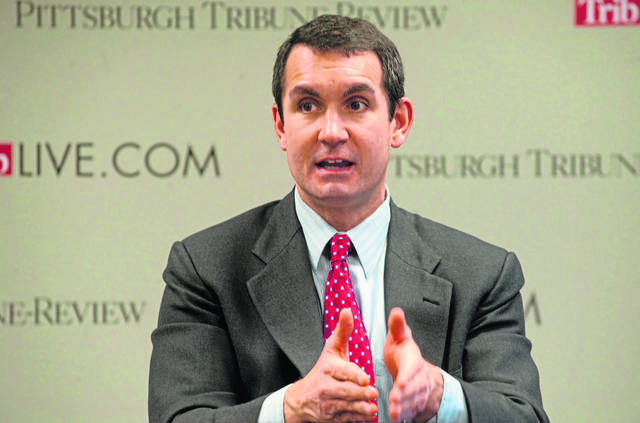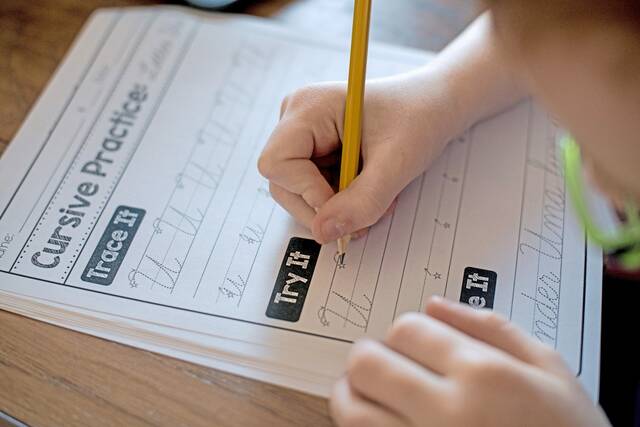The state Department of Health’s oversight of the 700 nursing homes in Pennsylvania has improved since the 2016 performance review by the auditor general, according to a follow-up report released on Tuesday. But Auditor General Eugene DePasquale warned that progress is threatened by the looming gray tsunami of baby boomers headed into retirement.
“We must get ready for the huge numbers of people who will need care in the not-so-distant future,” DePasquale said.
Nearly 90,000 people live in Pennsylvania nursing homes. About 15% of Pennsylvanians are 65 and older, the demographic most likely to need nursing home care. By 2040, nearly 25% of Pennsylvanians are expected to be 65.
The Pennsylvania State Data Center projects that in the next decade, there will be 38 older, dependent adults for every 100 working-age resident.
“The biggest challenge we’re going to face is who are going to be the workers to do this work?” DePasquale said at a news conference announcing the review. “I think we’ve made strides, but we need to do better.”
The 2% increase for personal care assistance services approved in June’s budget, DePasquale said, won’t be enough to meet the crisis that lies ahead. (The budget also included an $8 million increase to incentivize accepting Medicaid patients.)
Zach Shamberg, president and CEO of the Pennsylvania Health Care Association, a 500-member statewide industry group, echoed DePasquale’s concerns, saying that despite increases in the number of seniors needing care, there are fewer direct care workers pursuing careers in long-term care.
“This report reinforces our belief that nursing home providers, legislators and regulators must work together to ensure our long-term care continuum is able to provide high-quality care to older Pennsylvanians for years to come,” Shamberg said in a statement.
DePasquale began reviewing the progress the health department has made since his 2016 performance audit, which found the agency had provided lax oversight and had ceased accepting anonymous complaints, in violation of federal law.
The 2016 audit, which covered 2014 and 2015, contained 13 findings and 23 recommendations.
The health department began accepting anonymous complaints before the last audit was released and has since stepped up its enforcement.
In 2018, the department issued 169 sanctions and $2.3 million in penalties, up from 57 fines totaling $412,000 in 2016.
Through June this year, the department issued 139 sanctions and $1.7 million in fines, Health Secretary Rachel Levine said.
“We have used our full authority under the law,” Levine said.
The department is also looking to update its regulations, something that hasn’t been done in two decades. Those proposed updates, Levine said Tuesday, are expected to be completed and open for public review by year’s end. This is something DePasquale’s original audit recommended, as well as a regulatory review of minimum staffing hours. A requirement for 2.7 direct care hours per resident per day has been unchanged since 1999. The Centers for Medicare and Medicaid Services, the largest payer nationally for nursing home care, recommends 4.1 hours.
“New regulations are helpful,” said Sam Brooks, an attorney with Philadelphia-based Community Legal Services and an advocate for greater oversight. “But the regulations in place now need to be enforced.”
That enforcement, Brooks said, should include penalties for failing to meet the minimum staffing requirement (the health department doesn’t track this); properly identifying and penalizing care that harms or poses harm to nursing home residents; and a licensure review process that better vets owners. In 2018, Skyline Healthcare’s financial collapse forced the health department to remove its management 14 months after approving the company’s operating license.
“New regulations are welcome, but the department of health has a plentitude of regulatory tools now to protect nursing home residents,” Brooks said.
DePasquale also suggested in 2016 that the department update the amounts of the fines it levies, which are some of the lowest in the country.
The 2019 follow-up report, “Who Will Care for Mom & Dad?”, is available at paauditor.gov/audit-reports.
Correction: This story was updated to clarify state projections on the number of older, dependent adults per 100 working-age residents.








